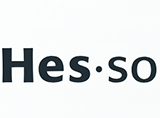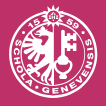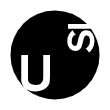Detailed introduction of University of Applied Sciences Northwestern Switzerland:
Introduction and Overview
University of Applied Sciences Northwestern Switzerland is one of the leading universities of applied sciences in Switzerland. It offers a wide range of degree programs. Its practice-oriented teaching philosophy, innovative and application-oriented research and global network make it a diverse and attractive educational institution.
History and Founding Time
The school was established on January 1, 2006 by the merger of Aargau State University of Applied Sciences, Basel State University of Applied Sciences, Solothurn State University of Applied Sciences, Basel University of Education and Social Work and Solothurn University of Education.
School Strength
Faculty: In 2018, it has 524 academic staff and a total of 2,947 faculty and staff. The strong faculty team provides a solid guarantee for teaching and scientific research.
Student size: In 2018, the number of students reached 12,419 It is one of the universities with the largest number of students in Switzerland.
Teaching resources: The school has rich educational resources, including libraries, laboratories, restaurants, workstations and other infrastructure. Most campuses are also equipped with sports facilities, clubs, student organizations and technical support services, providing students with good learning and living conditions.
Scientific research results: As one of the important applied science research institutions in Switzerland, the school has achieved fruitful results in applied technology research, development, consulting and other aspects, with 55 A research institution focusing on applied technology research, development, consulting and higher professional education, it has made important contributions to the development of the industry in Switzerland and around the world.
Institutional nature
The school is an interstate public university with independent legal personality, jointly managed by the cantons of Aargau, Basel-Landschaft, Basel-Stadt and Solothurn.
Educational philosophy
Emphasizing practical relevance, focusing on cultivating students' practical operation and problem-solving abilities, the curriculum is closely integrated with practical applications, and through practical projects, internships and other methods, students can accumulate experience in a real working environment and improve their employment competitiveness. It is committed to cultivating professionals with innovative spirit and practical ability for the society.
Key laboratories and disciplines
Key laboratories: The school has a number of advanced laboratories, such as the Advanced Manufacturing Technology Laboratory of the School of Engineering, which is equipped with high-precision CNC processing equipment, 3D Printing equipment, etc., provide a practice and research platform for students majoring in mechanical engineering, electrical engineering, etc.; the biotechnology laboratory of the School of Life Sciences has professional equipment such as gene sequencers and cell culture boxes to support students' research in the fields of biopharmaceuticals and biomedicine.
Key disciplines:
Engineering technology: covers majors such as mechanical engineering, electrical engineering, computer science and technology, focusing on cultivating students' innovation and practical abilities in the engineering field, and has provided a large number of outstanding talents for Switzerland's manufacturing industry, electronic information industry, etc.
Business and economics: including business administration, economics, finance and other majors, with a high level of teaching and research in the fields of business management and economics, and has cultivated many talented people with Professionals with international vision and business literacy provide strong talent support for enterprises and financial institutions.
Life Sciences: There are majors such as biotechnology, biomedical engineering, and pharmaceutical science. This discipline keeps up with the forefront of life science development, cultivates students' professional skills and innovation capabilities in the field of life science, and provides important talent support for the development of biopharmaceuticals, healthcare and other industries in Switzerland.
Art and Design: Covering majors such as graphic design, product design, and art education, it focuses on cultivating students' creativity and design capabilities, and has trained a large number of professional talents for cultural and artistic industries, design companies, etc., promoting the development of Swiss cultural arts and creative industries.
Department Settings
The school consists of nine colleges :
School of Applied Psychology: Provides undergraduate and master's courses related to applied psychology, and cultivates students' professional capabilities in psychological counseling, human resource management, market research and other fields.
School of Architecture, Civil Engineering and Geographic Information: Covers majors such as architecture, civil engineering, and geographic information science, and cultivates students' professional qualities in architectural design, engineering construction, spatial data analysis, etc.
School of Art and Design: Has majors such as graphic design, product design, visual communication design, and art education, focusing on cultivating students' artistic creation and design capabilities.
School of Life Sciences: Includes majors such as biotechnology, biomedical engineering, pharmaceutical science, and food science, and cultivates students' research and application capabilities in the field of life sciences.
School of Music: Provides professional courses such as music performance, music education, and composition , cultivate talents with professional music literacy and educational ability.
School of Education: covers preschool education, primary and secondary education, special education and other majors, cultivates professional talents in the field of education.
School of Social Work: has majors such as social work, social policy, social welfare, etc., cultivates students' professional abilities in social services, social management and other aspects.
School of Engineering: covers majors such as mechanical engineering, electrical engineering, chemical engineering, software engineering, etc., and focuses on cultivating students' practical and innovative abilities in the field of engineering technology.
School of Business: includes majors such as business administration, marketing, finance, accounting, etc., and cultivates professionals with business acumen and management ability.
Ranking
The University of Applied Sciences Northwestern Switzerland is in a leading position among the universities of applied sciences in Switzerland, but is relatively unremarkable in the international comprehensive ranking. However, some of its majors perform well in the professional rankings in related fields. For example, majors such as engineering technology and business management have certain competitiveness in the professional rankings in Switzerland.
Expenses
Tuition fees: Tuition fees for undergraduate and master's degree programs vary depending on the major, generally around 700-1500 Swiss francs per semester, equivalent to about 5600-12000 yuan.
Living expenses: The cost of living in Switzerland is relatively high, about 1500-2500 Swiss francs per month, including expenses for accommodation, food, transportation, entertainment, etc.
Campus
Campus distribution: The school has three main campuses, located in Basel, Brugg-Windisch, Muttenz and Olten, and there are also several small teaching centers in different cities, providing students with convenient learning places.
Campus facilities: The campus is equipped with modern teaching facilities and complete living facilities. The library has a rich collection of books, covering books and journals in various disciplines; the student dormitories are comfortable, providing students with a safe and convenient accommodation environment; the sports facilities are complete, including gymnasiums, football fields, basketball courts, etc., to meet students' physical exercise needs; in addition, there are various student organizations and clubs to enrich students' extracurricular life.
-

University of Applied Sciences and Arts of Western Switzerland
-

University of Basel
-

Swiss Federal Institute of Technology Zurich
-

University of Geneva
-

University of Bern
-

Università della Svizzera Italiana
-

University of Lausanne
-

Franklin University Switzerland, FUS
-

Bern University of Applied Sciences
-

University of St. Gallen
-

Mesoamerican University
-

Istmo University
-

Mariano Galvez University of Guatemala
-

Regional University of Guatemala
-

Galileo University
-

Francisco Marroquín University
-

Rafael Landívar University
-

University of the Valley of Guatemala
-

University of San Carlos of Guatemala
-

Technological Institute of Tlaxcala Plateau
-

Golfo University
-

Technological University of South Sonora
-

Technological University of Huejotzingo
-

Tizimín Institute of Technology
-

Chilpancingo Institute of Technology

